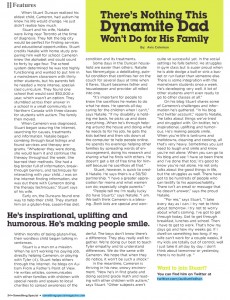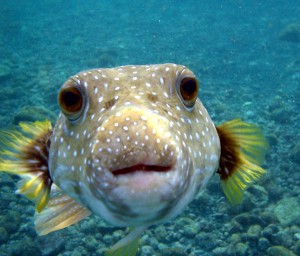Jenny McCarthy, more famous in the autism community for her on again/off again autistic son and her war on vaccines than her actual acting career, has made some very bold statements during the latest Autism One conference where she likened some moms to choosing to be victims and enjoying the “oh woe is me” victim role.
For some light reading on the subject:
Jenny McCarthy: Autism Moms “Fall in the the victim role…and they are loving it”
Words Matter
A letter to @JennyMcCarthy
There are a lot more posts and articles out there but I don’t want to list every single blog/article in the autism community because everyone has written about this.
I was going to let this go by as just something silly, nonsensical or, more or less, stupid.
But, upon thinking about it more today, I’ve come to the conclusion that I should say something. Something that I feel is imortant.
Perspective
To recount what it was that she said, I’m going to borrow from the Left Brain/Right Brain post (the first article I listed above):
As we continued to talk about alternative treatments for our children, I noticed the room separating into two sides. We were no longer talking as a whole anymore. There was a group of moms who didn’t want anything to do with what we were talking about. They slumped into a corner and had a “woe is me” attitude. I decided to eavesdrop on both conversations.
The “woe is me” moms were talking about how they didn’t get to shop or go to the beach with their friends anymore, and the “I’ll try anything if it will help my kid recover” moms were trading success stories about the latest treatments.
And, later…
“My other theory was that they enjoyed the victim role. I know that might sound mean, but I’m sure you’ve met people who are constantly having shit go wrong in their life. They complain and play the “don’t you feel sorry for me” game.
Now, for the most part, the autism community got up in arms over this in one of two ways… either being offended as she had called them victims, or defending her as they felt that she was making a great point.
My stance is, it’s all a matter of perspective. Now, hear me out.
This is just an example, but where’s the dads? How come it’s only moms who get a label? If anyone should be offended, it’s us dads that work every bit as hard as the victims and warriors combined and we’re forgotten about completely.
See? Perspective.
Anyway, more to the point, I’d like to offer a few alternative perspectives.
The two groups
The two groups that she alludes to were contained within one larger group of moms discussing alternative treatments. I can only assume, and this is just me, that if not all, then most of those moms were in the anti-vaccine camp… believing that vaccines, or other toxins, had caused their child’s autism in the first place.
This already excludes a lot of moms in the autism community. The majority I’d say, since most autism moms do not believe the vaccine theory. This means that she’s casting a divide within an already divided group.
So to put it mathematically, in hypothesis only and my numbers will be way off, if the split is 75/25 for moms who don’t believe the vaccine theory and those who do… then she’s dividing up the 25 into two groups. If 50/50 then it would be 13/12 or something like that.
It’s still very wrong to label those moms and cast judgement, I’m just saying that maybe she’s not talking about the moms that you think she’s talking about. You know, the moms that have no qualms with the toxins of the world.
The Accepting Mom
The prevalent perspective is that Ms. McCarthy is talking about moms that have come to accept their child as they are.. with or without autism. That those moms do not seek out chelation or force feed their children bleach and therefore would rather just be the victim.
If this is the perspective of choice, then you must realize that it’s how she sees things. It’s her own perspective.
I realize that this won’t be popular among those who like Jenny McCarthy or feel how she feels but remember, this is only to illustrate a different perspective.
See, she may consider a mom that does not try things like giving their child a bleach enema as just playing the victim but I tend to think of that mom as simply having common sense enough to not try something obviously dangerous, and stupid.
She may consider a mom that accepts their child for who they are as enjoying the victim role so much that they give up rather than try tons of pointless and costly treatments but I tend to think that not seeing their children as damaged goods in the first place, and having unconditional love trumps all titles that one can fling at them.
She may consider a mom that talks about her struggles in raising a child with autism as a person that basks in the feeling of being the helpless victim but I tend to see that mom as someone that I can relate to, get advice from, share experiences with and understand.
She may see a “warrior mom” as a woman that battles “big pharma” and government agencies. That’s fine. To me, when I see a mom crying about how the evil empires broke their child, how much money they spend on treatments that put their children in danger because they are so desperate to cure them… that’s when I see a victim. In fact, I hear it in their chants: “big pharma is making money while making our children sick. We’re the victims!”
She may see a mother that never stops fighting for their child as a warrior mom but I tend to think that ALL MOTHERS NEVER STOP FIGHTING FOR THEIR CHILD. If they do… they’re not really their mother. Moms do not give up. Period.
She may see compassion, positivity, acceptance, understanding and love as being the victim. Then I say, please call me a victim too.
If seeing my child as perfect makes me a victim and seeing my child as broken, in need of being cured from the damage done by evil doctors makes me a warrior… I’ll take the victim title, thank you.
That’s just my perspective. And opinions are born out of perspectives. They do not make them fact.
Her opinions, based on her perspective, should remain her own.
She’s entitled to them.
As I am entitled to mine.
Signed,
Victim and proud.












